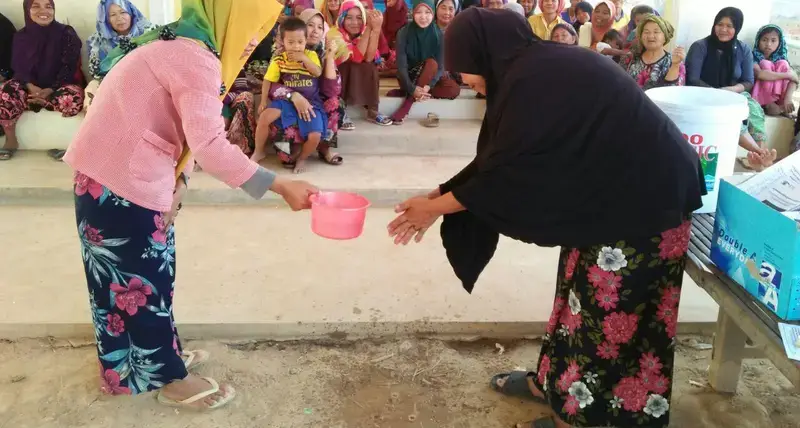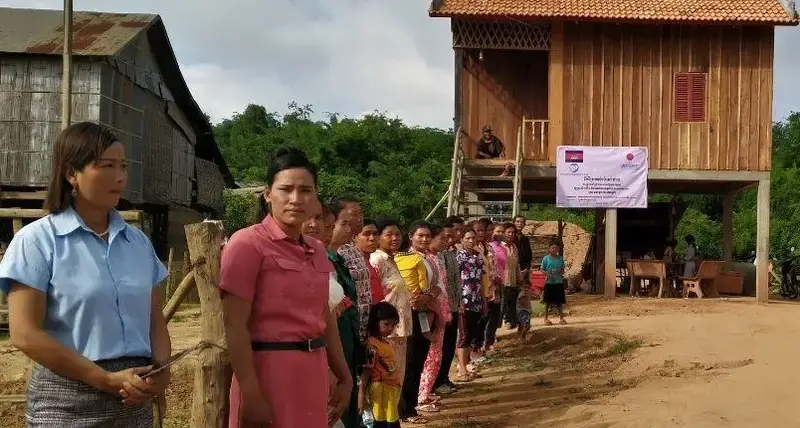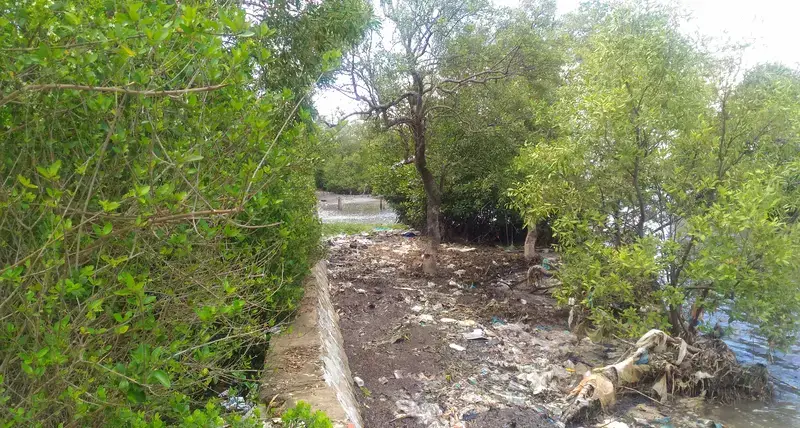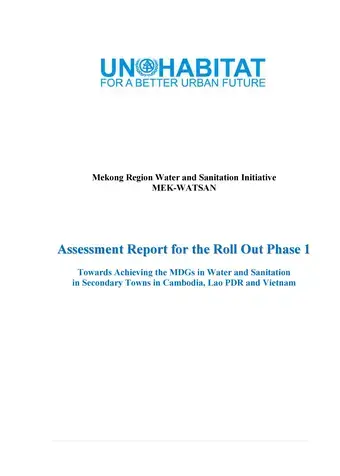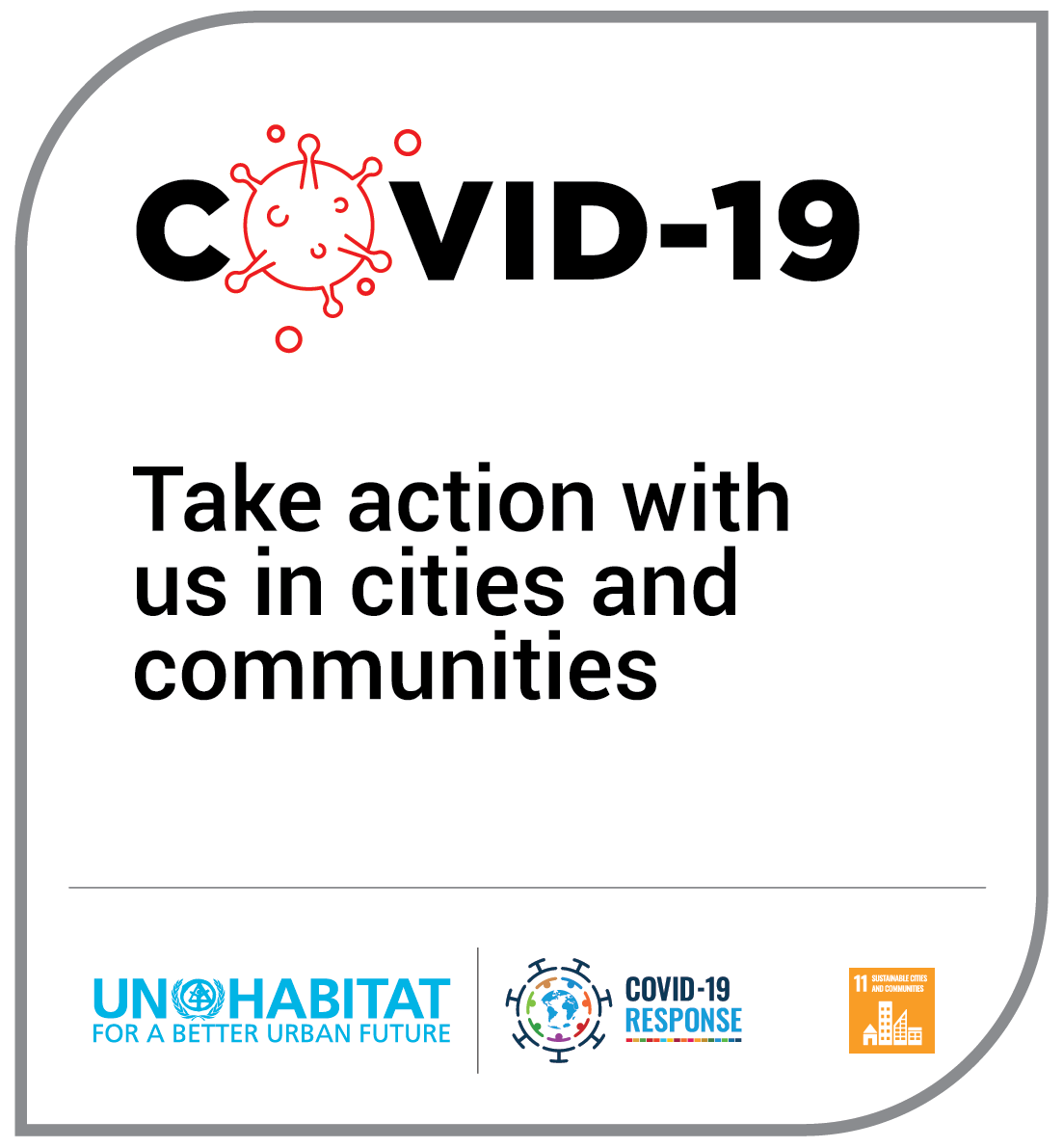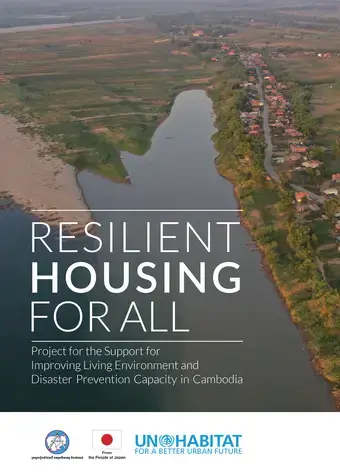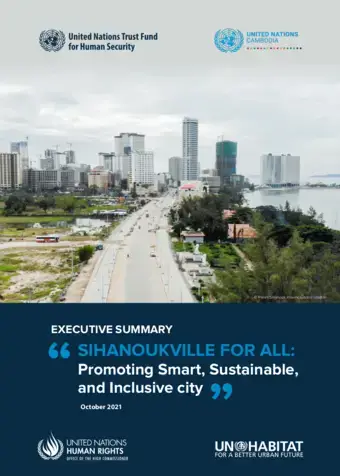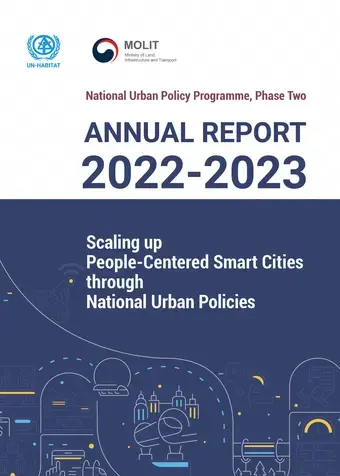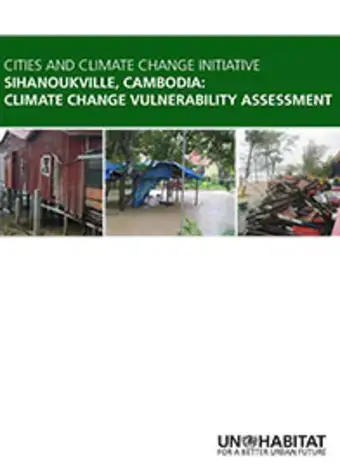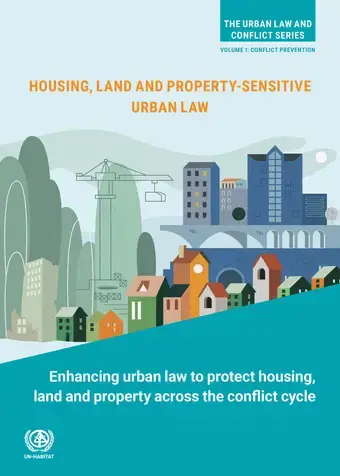Overview
UN-Habitat has supported Cambodia’s national government, provincial governments, city authorities and people since 1996 to reduce inequality, promote living standards of vulnerable communities, facilitate and empower communities to improve living conditions and early recovery for disaster effected communities. UN-Habitat’s technical assistance in Cambodia includes water and sanitation, affordable housing, disaster risk reduction, slum upgrading and urban poverty reduction, urban planning and management, urban climate change adaptation and mitigation. diverse areas responding to country’s emerging needs ranging from, urban knowledge generation, municipal finance, urban poverty alleviation, community-based infrastructure, environment improvement, climate change and rehabilitation and reconstruction etc.
Urbanization in Cambodia has been largely unplanned and unregulated. With 1.5% population growth at national level and high urban growth rate such as 5% in capital Phnom Penh create many socio- economic, environmental and governance challenges to cities. The situation has led to rising concerns over the current capacity of infrastructure and public service to meet growing political, social and economic demand.
Despite the existence of the Phnom Penh Master Plan 2035, and many other national and sub-national laws, frameworks, and plans, capacity gaps in the cities on managing urbanization has become one of the priority areas for coming years if Cambodia to graduate to middle income level.
Urban poverty rate is 9.5 percent which contributes to many social and economic challenges for city authorities
Household with lower incomes experienced greater difficulty securing affordable and safe housing
Around 8.4 percent of urban dwellers in cities deprived from adequate access to sanitation
Donors and partners
In Cambodia, the Ministry of Land Management, Urban Planning, and Construction (MLMUPC) is the Government focal Ministry to UN-Habitat. UN-Habitat Country Manager is a member of the United Nations Country Team and various Technical Working Groups related to land and urbanization, including Humanitarian Response Forum and Shelter Working Group. UN-Habitat in Cambodia has partnerships local authorities and NGOs.
Donors
Contact
Highlighted Publications
Legacy content
In partnership with the Royal Cambodian Government, UN-Habitat can help Cambodia to achieve a sustainable urban future. Any urban interventions undertaken by UN-Habitat and the Royal Government will need to be multi-sector and involve cooperation with other development partners (external funding and technical assistance grants) and partnerships with (local) government and the private sector as well as participatory development where various elements of civil society will be able to contribute to overall development of Cambodia. The close links across the sector strategies indicates the intentions of a pro-poor and pro-rural urban development strategy.
General information
Cambodia is at a critical junction to set the trajectory right for urban development and to start managing its urbanization process. A collaborative partnership with the government could set the right trajectory and follow key actions to guide future development:
- Establish a vision for urban Cambodia - while an Urban Development Strategy is currently being prepared by the Ministry of Land Management, Urban Planning and Construction (MLMUPC), unless this is adequately consulted and considered as an integral part of the overall National Strategic Development Plan (NSDP), it will have little importance or impact, and will likely become an unfunded mandate.
- Set in place mechanisms for integrated infrastructure planning and land use management, and enforce them. While some plans are currently in place for different sectors, these are usually limited integration. Good practices in planning also involve integrating goals for disaster risk reduction, climate resilience and green growth—which currently are not being considered. Most importantly, land use plans need to be regulated, as even with adequate plans, lack of enforcement creates severe challenges.
- Develop options for financing. Turning existing cities into modern cities of the future will require huge investments and, as evidenced worldwide, central government transfers and donor projects will not be enough to meet the needs. Options will be to borrow money and attract private investment – but to do so require cities to establish their creditworthiness by securing cash flows from user fees and taxes, and by leveraging the value of land in various ways, including through property taxes. This will require i) further enhancement of the decentralization policy; ii) capacity development of the city administrations; and iii) changes to land valuations and land management. This would need to be followed by creating a domestic credit market and establishing the conditions for cities to incur and issue debt.
- Develop a multi-modal transport strategy and integrate transport planning with land use planning. The most visible impact of urbanization in cities across Asia is traffic congestion. The number of motorbikes and cars has increased exponentially, as witnessed even in Phnom Penh. Actions need to be taken now.
- Make urban development inclusive. Burdened by insecure tenure, poor quality housing, lack of access to basic services, the urban poor bear an unequal share of the service shortfalls of the city. At the same time, rising land prices and the pressure to convert the lands occupied by the poor to high value property development, and the growing development needs of a rapidly expanding city have combined with the perceived illegality of informal settlements to cause involuntary displacements of large numbers of the poor. These pressures have increased the uncertainty of the urban poor of their future in the city and the growing fears have become a cause of public displays of social discontent and increased protests.
UN-Habitat projects in Cambodia
Since 1996, UN-Habitat has supported the Cambodian Ministry of Land Management, Urban Planning and Construction (MLMUPC), the Municipality of Phnom Penh (MPP) and Cambodia’s urban communities through a number of urban development projects through various projects and programmes. This includes:
- Phnom Penh Urban Poverty Reduction Project – phase I, phase II (UK-DfID, UNDP)
- Phnom Penh - Local partnership for poverty reduction – Phase I, Phase II (Human Security Trust Fund)
- Draft Housing Policy (MLMUPC,UNDP, ESCAP) Major interventions supporting the MPP and urban poor communities ranged from:
- In-situ upgrading and community development
- Planned relocations and community mobilization/development
- Policy and capacity development support for MPP through its urban poverty reduction unit
- Strengthening of local governance and institution building for urban poor communities’ organizations.
Currently, UN-Habitat Cambodia is:
- Supporting 7 provinces in Cambodia under the Mekong Water and Sanitation programme (MEK-WATSAN), implemented by Ministry of Industry, Mines, and Energy (MIME) and Ministry of Rural Development (MRD).
- Providing technical assistance to the Climate Change and Cities Initiative in Sihanoukville as part of the Cambodia Climate Change Alliance Trust Fund, led by Preah Sihanouk local authority in cooperation with the Ministry of Environment.
- Participating in the UN Development Assistance Framework (UNDAF) Cambodia.
- Working with the government counterpart, the Ministry of Land Management, Urban Planning and Construction (MLMUPC), who has been attending the Governing Council Meetings of UN-Habitat.
- Seeking to further its activities in the areas of urban planning, land use planning, citywide upgrading and housing, water and sanitation, low cost resilient housing and climate change, disaster and climate change in Cambodia.
- Represented by a Habitat Programme Manager and an Urban Development Specialist.
Contacts
Mr. Vanna Sok Habitat Programme Manager for Cambodia United Nations Human Settlements Programme habitat.fukuoka@unhabitat.org
Images

